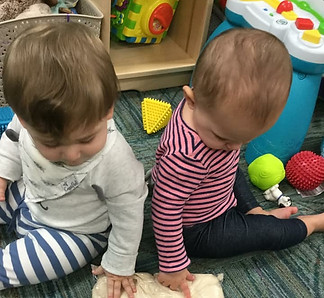top of page

OUR
Curriculum
.......
..........


Curriculum
Children's brains are elastic! We want to stretch their minds and inspire them! Research shows that the majority of our children's neural connections are formed before they finish kindergarten. With this knowledge, we envisioned and created the Chabad Garden School in September 2010. Our curriculum is inspired by the Reggio Emilia philosophy to nurture and enhance the boundless potential of the early childhood years.
Our classrooms are set up in a warm, natural environment and are designed around learning centers which include math, art, dramatic play, locks, library, writing, sensory , and scientific discovery to name a few. These centers allow the children to have choices and to actively explore.
Our curriculum encourages children to gain confidence and experience cooperative relationships with both peers and adults, all in an atmosphere of inspiration and growth filled with joy, laughter, and developmental and academic excellence.
Social relationships are crucial in so many areas of life, and a positive preschool experience is one of the most important keys to a child's future success in connecting with other people. Children are born intrinsically social and we want to be right there to help them navigate social experiences and gain social skills. Children need to feel valued when others listen to them, and learn that what they say and do is important and has an effect on others. Teachers encourage children to use words to express themselves, model how to resolve conflicts, and facilitate the development of empathy and concern for others.
We believe that children learn best by doing and playing and through being inspired by developmental and academic opportunities. Learning requires active thinking and experimenting to find out how things work, and to learn first-hand about the world in which we live. Children are given the opportunities to explore, using all their senses, and using real materials to try out their ideas about size, shape, color and the relationship that exists between real-life objects. By moving from the abstract to the concrete, play provides the foundation for academic learning.
bottom of page